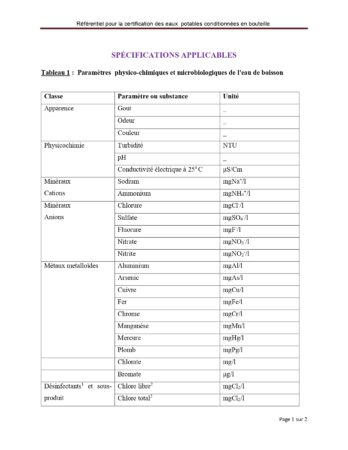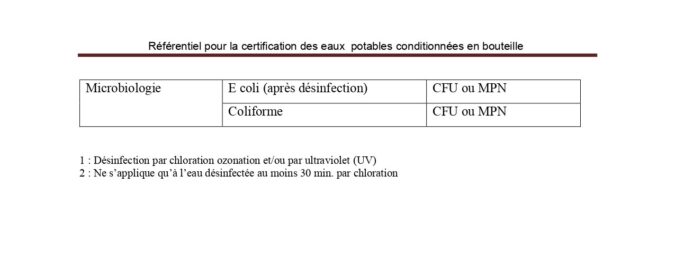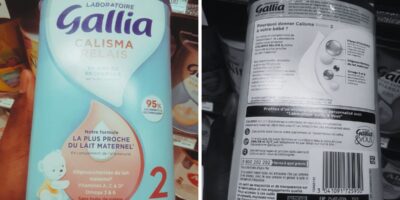Deprived of resources, state institutions responsible for the oversight of « treated water » are unable to carry out their duties, according to revelations made to AyiboPost
The majority of companies selling treated water, whether it be locally sourced or imported, are not subject to any technical, systematic, or routine supervision by the Haitian government, as disclosed by officials from regulatory bodies to AyiboPost.
At least three government institutions should be involved in the process of ensuring the compliance of water sold on the market.
Firstly, there is the Directorate of Quality Control and Consumer Protection (DCQPC) within the Ministry of Trade and Industry (MCI), responsible for overseeing the quality of goods and services, as well as ensuring the health and economic protection of consumers.
Most companies selling treated water […] are not subject to any technical, systematic, or routine supervision by the Haitian government.
In an interview with AyiboPost, Willy Bien-Aimé, the head of the DCQPC, cited financial constraints and a lack of equipment as challenges for the institution.
According to its head, « the DCQPC is currently working on a certification program for the treatment and sale of packaged treated water throughout the metropolitan region of Port-au-Prince, » but it will be « challenging to inspect water treatment centers located in areas controlled by gangs. »
Willy Bien-Aimé specifies that the institution has no control over a significant portion of the companies selling water, but that « vendors registered in [their] database are subject to regular inspections. » He did not wish to disclose the list of these vendors or indicate how many of them there were.
The institution does not exert control over a significant portion of the companies selling water, but vendors registered in [their] database are subject to regular inspections.
On its side, the Ministry of Public Health and Population (MSPP), through its Department of Health Promotion and Environmental Protection (DPSPE), must assess the quality of water intended for consumption and grant operational permits to treatment plants.
Also read : L’eau traitée par osmose inverse est imparfaite. Voilà pourquoi !
If the DPSPE is slow in properly performing its work, it informed AyiboPost of new measures to fully fulfill its duty.
In the near future, Dr. Valdimy Aldolphe, head of the Public Hygiene Department at DPSPE, promises that « no company specializing in the sale of water intended for human consumption will be able to open its doors without DPSPE’s authorization. »
Despite the binding authority of the MSPP, the DPSPE has not yet shuttered any company operating in the water treatment sector due to quality issues, according to Dr. Aldolphe. However, the institution will soon prohibit the opening of new kiosks without evaluation and authorization from the MSPP, warns the official in a context where, according to him, all imported treated water in Haiti undergoes no quality control.
The DPSPE will soon prohibit the opening of new kiosks without evaluation and authorization from the MSPP.
The Haitian Bureau of Standards (BHN), under the supervision of the Ministry of Trade and Industry (MCI), also plays a role in the chain of command. The certification of products in Haiti and the affixing of the certification are exclusively the responsibility of this governmental entity, which has been operational since December 2012.
Also read : Connaissez-vous le rôle du Bureau haïtien de Normalisation ?
Notably, the BHN is confronted with a legal framework issue, since it cannot legally compel companies to adhere to standards.
For instance, on June 29, 2022, the bureau launched a certification program for bottled drinking water in Haiti. Water treatment companies are thus invited to apply for certification.


Page 2 of 2 | Source : Bureau haïtien de Normalisation (BHN) – June 7, 2023
More than a year later, no water treatment company intended for consumption in Haiti has undertaken this process, according to officials interviewed by AyiboPost.
Notably, the BHN is confronted with a legal framework issue, since it cannot legally compel companies to adhere to standards.
Michaëlle Sinéus leads the certification department at the BHN. She regrets that the institution is not authorized to impose its certification program onto companies. « The framework we have so far is of a voluntary nature, » says Sinéus. « At this stage, we do not yet have a national standard for drinking water, but we are working on it, » she emphasizes.
Successful companies like Culligan, Eau nationale, and Eau Miracle were contacted to no avail for this article. However, Miché Saint-Jean, the marketing and collections manager at Eau Alaska, admits to « not remembering » the date of the last assessment visit conducted by the MSPP and the National Directorate of Water and Sanitation (DINEPA).
Despite not undergoing any technical, systematic, and routine supervision, according to Saint-Jean, Alaska implements a high level of quality control for its production.
The laxity of regulatory bodies often comes with detrimental consequences for consumer health.
Also read : En Haïti, l’eau «potable» contient de la matière fécale
Sorel, a resident of Pacot, told AyiboPost last Friday that he had previously purchased several gallons of water contaminated with visible parasites from a reputable company in Port-au-Prince. Since then, the 52-year-old man claims to have switched to a different point of sale.
A mother of four children, 48-year-old Jeanna, reveals that she made the same decision when she discovered that the « treated water » she was purchasing at a premium was causing diarrhea in her baby.
According to a document from the Directorate of Quality Control and Consumer Protection of the Ministry of Trade and Industry obtained by AyiboPost, bottled and bagged water manufactured in Haiti is very low in mineral content, according to test results conducted in 2014 and 2015 on 262 samples from the Artibonite, Centre, West, and South-East departments.
The negligence of regulatory authorities often comes with adverse consequences for consumer health.
According to the 2016 data from the DCQPC, around 50 large and medium water treatment companies, as well as approximately 90 water resale kiosks, are listed in the metropolitan area of Port-au-Prince.
By Fenel Pélissier et Rolph Louis-Jeune
English translation by Sarah Jean.
© Cover image : freepik
Watch our report published in September 2020 about fecal contamination of the groundwater in the metropolitan region of Port-au-Prince:
Stay in touch with AyiboPost through :
▶ Our Telegram canal : click here
▶ Our WhatsApp Community : click here







Comments